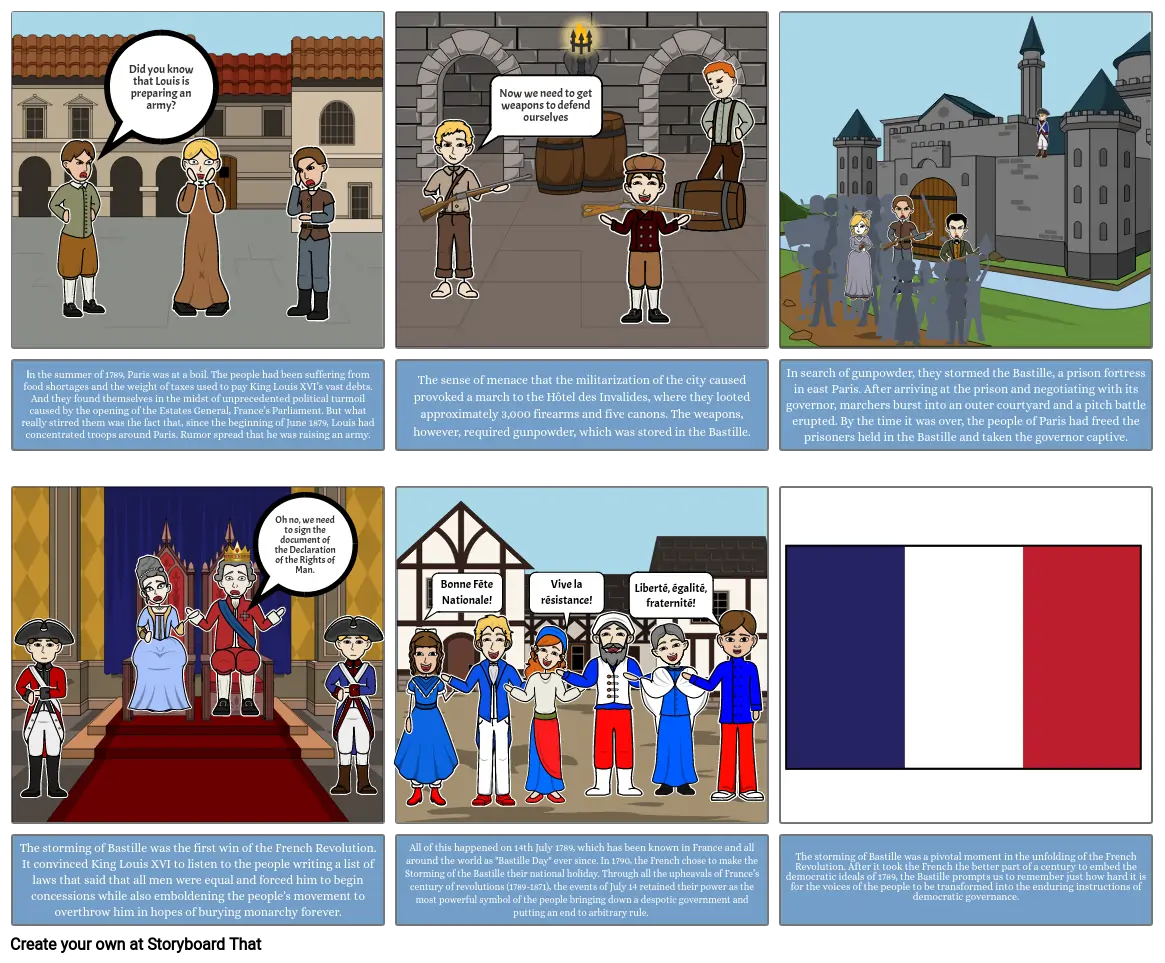Humanities - French Revolution - The Storming Of Bastille

Storyboard Text
- Did you know that Louis is preparing an army?
- Now we need to get weapons to defend ourselves
- In the summer of 1789, Paris was at a boil. The people had been suffering from food shortages and the weight of taxes used to pay King Louis XVI’s vast debts. And they found themselves in the midst of unprecedented political turmoil caused by the opening of the Estates General, France’s Parliament. But what really stirred them was the fact that, since the beginning of June 1879, Louis had concentrated troops around Paris. Rumor spread that he was raising an army.
- Oh no, we need to sign the document of the Declaration of the Rights of Man.
- The sense of menace that the militarization of the city caused provoked a march to the Hôtel des Invalides, where they looted approximately 3,000 firearms and five canons. The weapons, however, required gunpowder, which was stored in the Bastille.
- Bonne Fête Nationale!
- Vive la résistance!
- Liberté, égalité, fraternité!
- In search of gunpowder, they stormed the Bastille, a prison fortress in east Paris. After arriving at the prison and negotiating with its governor, marchers burst into an outer courtyard and a pitch battle erupted. By the time it was over, the people of Paris had freed the prisoners held in the Bastille and taken the governor captive.
- The storming of Bastille was the first win of the French Revolution. It convinced King Louis XVI to listen to the people writing a list of laws that said that all men were equal and forced him to begin concessions while also emboldening the people’s movement to overthrow him in hopes of burying monarchy forever.
- All of this happened on 14th July 1789, which has been known in France and all around the world as "Bastille Day" ever since. In 1790, the French chose to make the Storming of the Bastille their national holiday. Through all the upheavals of France’s century of revolutions (1789-1871), the events of July 14 retained their power as the most powerful symbol of the people bringing down a despotic government and putting an end to arbitrary rule.
- The storming of Bastille was a pivotal moment in the unfolding of the French Revolution. After it took the French the better part of a century to embed the democratic ideals of 1789, the Bastille prompts us to remember just how hard it is for the voices of the people to be transformed into the enduring instructions of democratic governance.
Over 30 Million Storyboards Created

